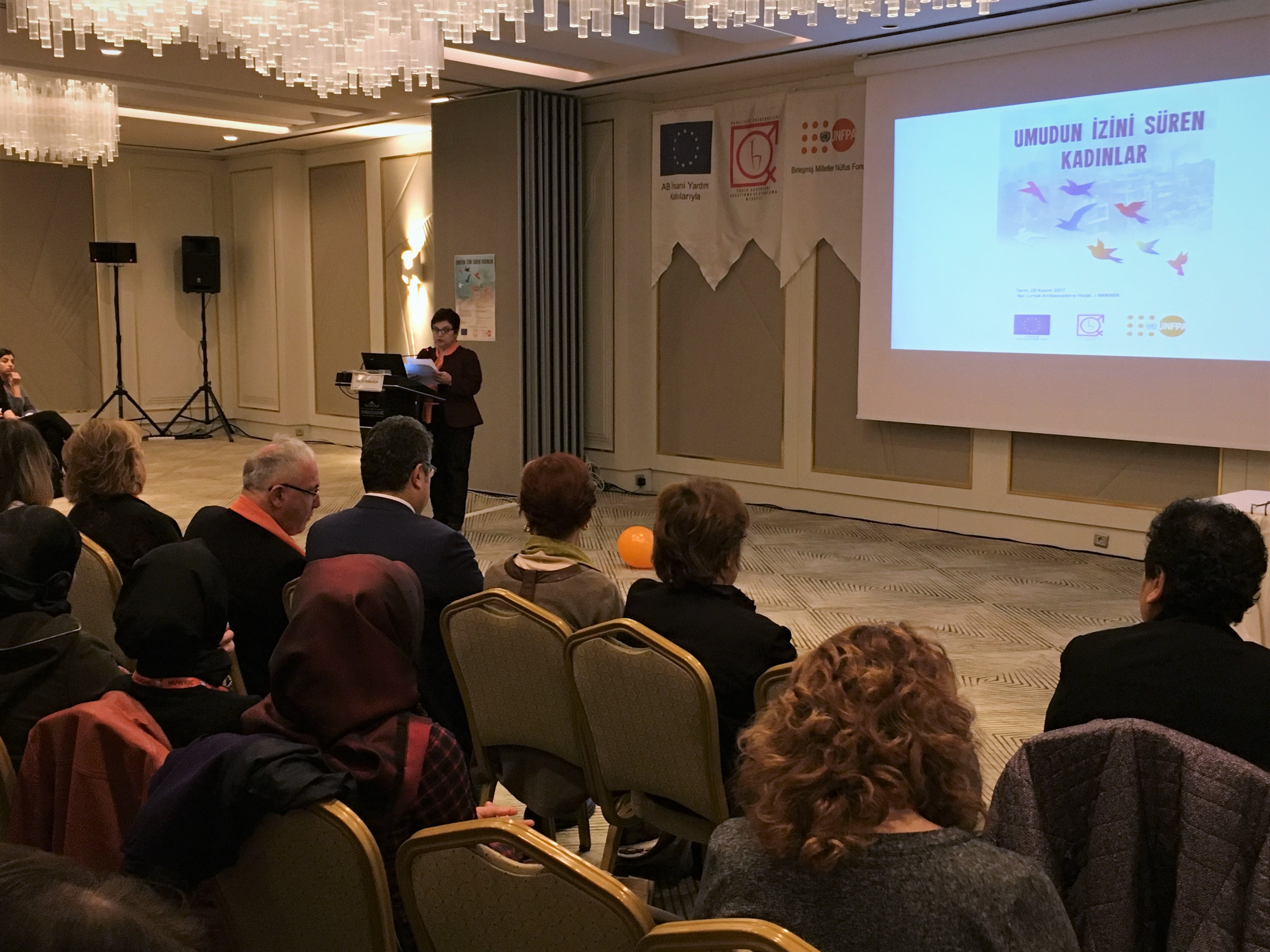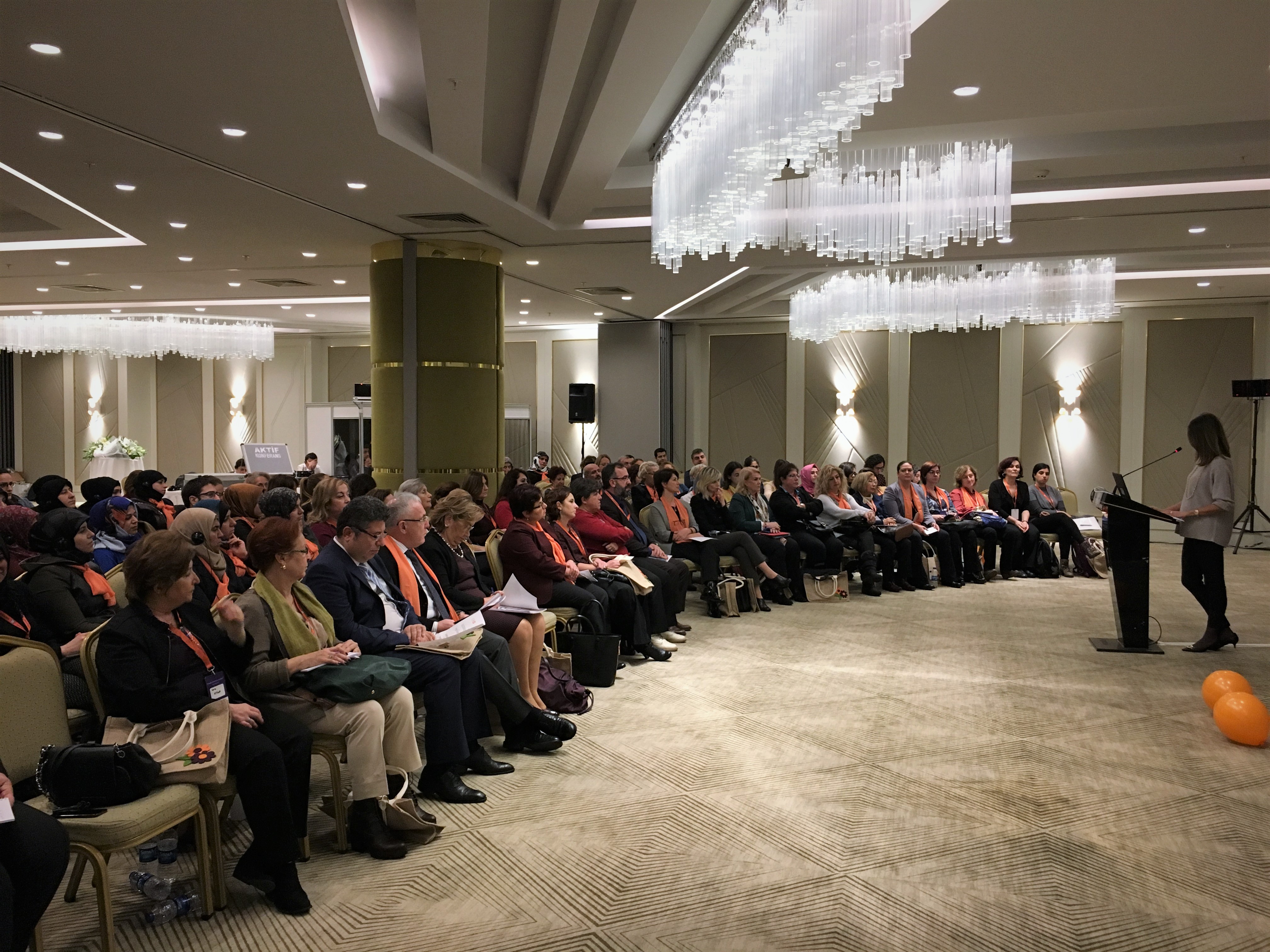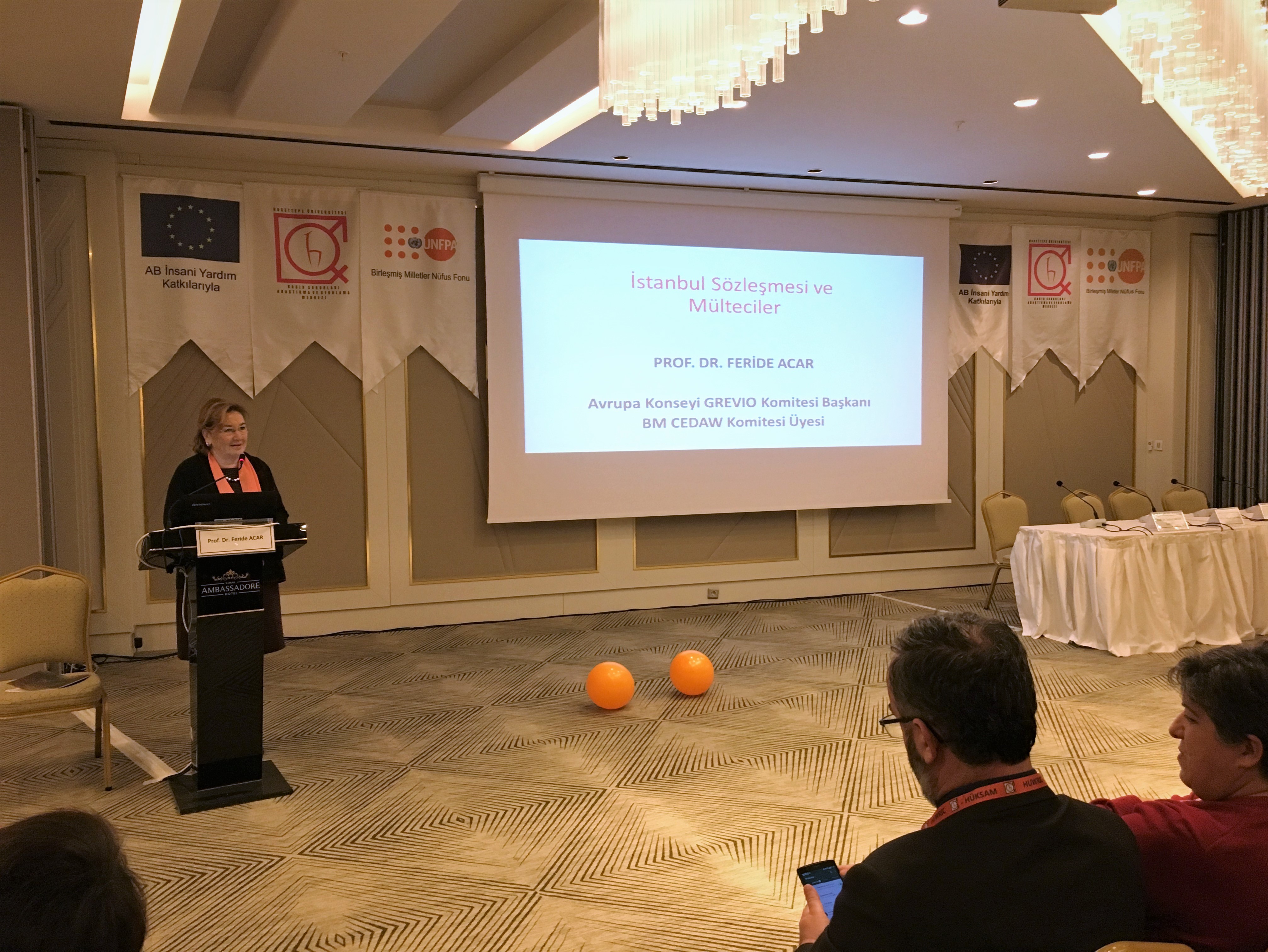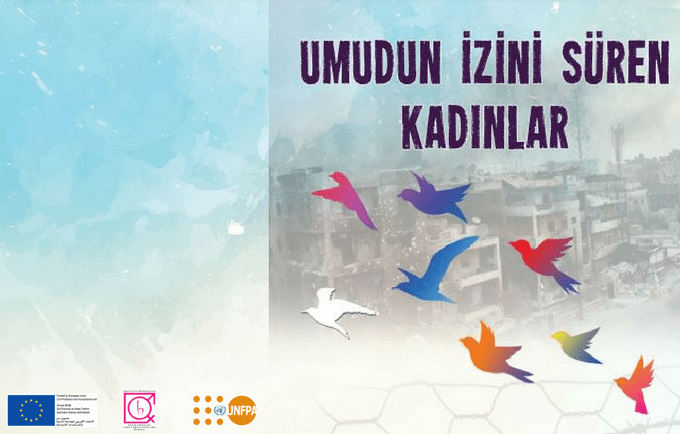28 November 2017, Ankara - 25 November, International Day for the Elimination of Violence against Women has been observed in an event titled “Women Tracing the Light of Hope” to raise awareness for the violence against women. The event, which has been organized in partnership with the United Nations Population Fund (UNFPA) and with the financial support of the Office of European Civil Protection and Humanitarian Aids Operations (ECHO) within a protocol signed with Hacettepe University’s Women’s Research and Implementation Centre (HUWRIC) and Directorate of Public Health of Ankara. The conference was organized within the 16 Days of Activism to end the gender-based violence campaign.

In the speech she made during the event, Prof. Dr. Şevkat Bahar Özvarış, Director of HUWRIC, Hacettepe University’s Women’s Research and Implementation Centre, gave detailed information about the Women’s Health Counselling Centres run by HUWRIC, the implementing partner of UNFPA, and financed by ECHO, the Office of European Civil Protection and Humanitarian Aids Operations. “In these centres’’ she said, “refugee women and girls can receive sexual and reproductive health services as well as information regarding family planning”. Prof. Dr. Özvarış also mentioned other activities realized in these centres, such as social activities, Turkish language courses, psychosocial support services provided to those subjected to violence and those held to raise awareness against the violence that women are exposed to.

Zeynep Başarankut Kan, UNFPA Turkey Assistant Representative, who also spoke at the event, said: “Violence against women, including child marriages, is a violation of human rights, in fact, one the most ferocious violations, depriving women and girls of their future, also constituting a threat for their lives and preventing them to live a peaceful and quiet life. It is also a serious public health problem. Since 2011, UNFPA Turkey Office has been offering services for refugee girls and women as the primary target group in the fields of health, empowerment and violence against women in cooperation with its esteemed partners such as the Ministries of Health and Family, and HUWRIC, in an attempt trying to reach girls and women, already with 41 centres in 20 provinces as per the end of 2017. In 2018, we will continue to expand our activities intended for refugees in 75 centres.’’

Prof. Dr. Feride Acar, President of GREVIO, the monitoring body of the İstanbul Convention, made a presentation at the event, touching on progress made in combat violence against women in Turkey. She said: “Owing to international norms, substantial changes have occurred in Turkey. Even though the international conventions that our country has ratified could only be partly put into practice, such norms have been very effective with respect to inducing a significant change of mindset concerning violence against women in our country.”
Prof. Dr. Acar further said that violence against women is regarded as a violation of human rights and underlined that this significant change has been possible primarily thanks to CEDAW, the UN Convention on the Elimination of All Forms of Discrimination against Women, which has played a pioneering role in this sense, exerting a significant influence on the States. The İstanbul Convention opened for signature in May 2001 is a treaty that has created a framework to protect women against all forms of violence. İstanbul Convention is regarded as a golden standard in this field in the world.”
Prof. Dr. Acar noted that İstanbul Convention also defines and handles insistent pursuit, including the one performed over social media, as a type of violence against women.
Prof. Dr. Acar especially underlined “the integrated policy” that is embedded in the İstanbul Convention as a significant aspect of the document and foresees taking preventive steps in every field from education to politics. She further said that the İstanbul Convention prohibits the use of mediation or reconciliation to resolve disputes, underlining that such approaches could only be effective between people having equal conditions.
Prof. Dr. Özlem CANKURTARAN, who made a speech titled “Being a Woman on the Path from Syria to Turkey” during the event, said: “Women from Syria have told us about their life, providing insights into the way of living of women in Syria. One of the women I spoke to said that she had a sombre life in Syria. Then she had a grey life in Jordan where she had to flee to. Then in Turkey, she now feels in the pink in every sense.” In her presentation, Ms. Cankurtaran also shared her findings about the violence women are exposed to: “We see how women suffering under traditions where heavy patriarchal pressure is considered as legitimate try to get empowered. In such communities, girls are looked down upon and regarded as undesired children. We observe that in oppressive communities children are married off much more frequently at earlier ages. They want that girls that are married off at 12 or 13 years of age grow up in the family of their husband, taking a form desired in that family structure. From 7 years of age, girls are prepared for marriage, to become a woman, to become a mother.’’
Speaking about the dimensions of the violence women are exposed to, Prof. Dr. Cankurtaran said: “The most important factor underlying the violence women are subjected to is the attempts to make them obey, “to make them come to heel”. Not only men, who directly perpetrate violence, but the whole family inflicts violence upon the girl or the woman targeted, isolating her, holding her in disrespect, and reprimanding her. Women try to combat violence in silence. This is, in fact, something they have learnt from their mothers. Only with increasing age do women slowly begin to manage to escape out of this violent cycle.’’
Emphasizing that putting pressure on a woman to bear a child is also a type of violence, Prof. Dr. Cankurtaran said that, contrary to the general opinion, bearing a child is not a factor that eliminates violence: “Women prefer to give birth to a child to combat polygamy. Our observations in the field have, however, shown that this is not an effective solution. A woman exposed to violence and wishes to get divorced has to be supported in an effective manner; otherwise, women who cannot receive such support “become obliged to put up with the violence.”
After the presentations, the event embarked on a session where refugee women shared their experiences with experts, followed by a question-and-answer session. The final session of the observance event focused on creating awareness about violence and informing the refugee girls and women about the support mechanisms they can benefit from.
United Nations Population Fund (UNFPA) Women and Girls Safe Spaces (WGSS)
One in three women in the world marries before the age of 18. Unless essential and effective studies are conducted about child marriages, it is expected that the number of women who marry at a young age will reach 1.2 billion as of 2050. The United Nations Population Fund (UNFPA) Turkey Office has been offering capacity development, service provision, reproductive health services and hygiene supplies in women's health and violence against women within the scope of the Humanitarian Aid Program since 2011.
In this respect, Safe Spaces for Women and Girls (WGSS) have started to forge cooperation with various organizations. The centres established in various cities in 2017 with the support from the European Commission Civil Protection and Humanitarian Aid Operations (ECHO), US Government, Swedish Government and the Japanese Government mainly operate in sexual and reproductive health, gender-based violence, psycho-social support, empowerment and supply distribution for asylum seeker women and girls.
United Nations Population Fund (UNFPA)
The United Nations Population Fund (UNFPA) was established in 1969 as the biggest aid source with international funding in the area of population operating around the world. UNFPA operates in more than 150 countries for creating policies and strategies that support sustainable development. Having started its activities on a project basis, the United Nations Population Fund (UNFPA) has been working on reproductive health, encouraging social-gender equality, and collecting, using and distributing data about development and humanitarian aid in Turkey since 1971. Within this framework, the first Country Program lasted from 1988 to 1992 and now the Sixth Country Program (2016-2020) is being executed.
The United Nations Population Fund (UNFPA) works to deliver a world where every pregnancy is wanted, every childbirth is safe and every young person's potential is fulfilled. To this end, UNFPA focuses especially on 4 of the Sustainable Development Goals (SDGs); SDG 3: Good health and well-being, SDG 4: Quality Education, SDG 5: Gender Equality and finally, SDG 17: Partnerships for Goals
Follow United Nations Population Fund (UNFPA) on social media:


